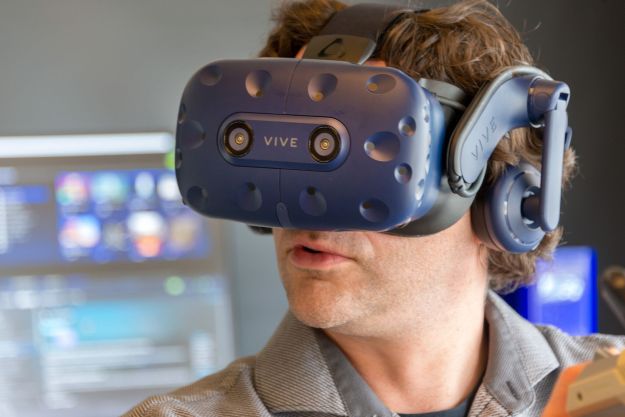
John Carmack will resign as Technical Director of id Software in order to spend more time focusing on Oculus VR, the studio confirmed to GI.biz. Carmack has been with id since helping to co-found it in 1991, and has overseen the release of all its games, from Doom to Quake to Rage.
While the news may come as a shock to some, it really isn’t that surprising. Carmack has stated for years now that the future of gaming rested with virtual reality headsets. Then, in August of 2013, Carmack joined Oculus VR as its Chief Technological Officer. That left many wondering how he would balance the demands of working with a startup company producing a new piece of technology, while still working with id and developing – presumably – Doom 4.
Since its inception, Carmack has been the heart of id – or perhaps a better comparison would be its brains. Carmack has been the primary programmer for the massively popular and widely used id Tech gaming engines, which have earn the company accolades and recognition for decades.
Carmack was the last of the four original founders still at the company, with Adrian Carmack, Tome Hall, and John Romero all having left years earlier. With Carmack’s departure, that likely gives Creative Director and co-owner Tim Willits the bulk of the authority. It was from Willits that the official word came down.
“John Carmack, who has become interested in focusing on things other than game development at id, has resigned from the studio,” he said. “John’s work on id Tech 5 and the technology for the current development work at id is complete, and his departure will not affect any current projects. We are fortunate to have a brilliant group of programmers at id who worked with John and will carry on id’s tradition of making great games with cutting-edge technology. As colleagues of John for many years, we wish him well.”
Carmack’s departure from id gives yet another boost to Oculus VR, which has gone from upstart to industry darling without releasing a finished product yet, but it leaves id in a strange position.
After being purchased by Bethesda Softworks’ parent company ZeniMax in 2009, id has only put out one completely new game, Rage, which saw only moderate success; a sequel was recently cancelled. In April, it was revealed that Doom 4 would need a complete overhaul, which could take years. Despite Willits’ assurances that this won’t affect any current projects, this will certainly cause some reshuffling at id, at the very least.
As for Carmack, he can now devote his full attention to Oculus VR and the Oculus Rift headset.
“I wanted to remain a technical adviser for Id, but it just didn’t work out,” Carmack tweeted. “Probably for the best, as the divided focus was challenging.”


